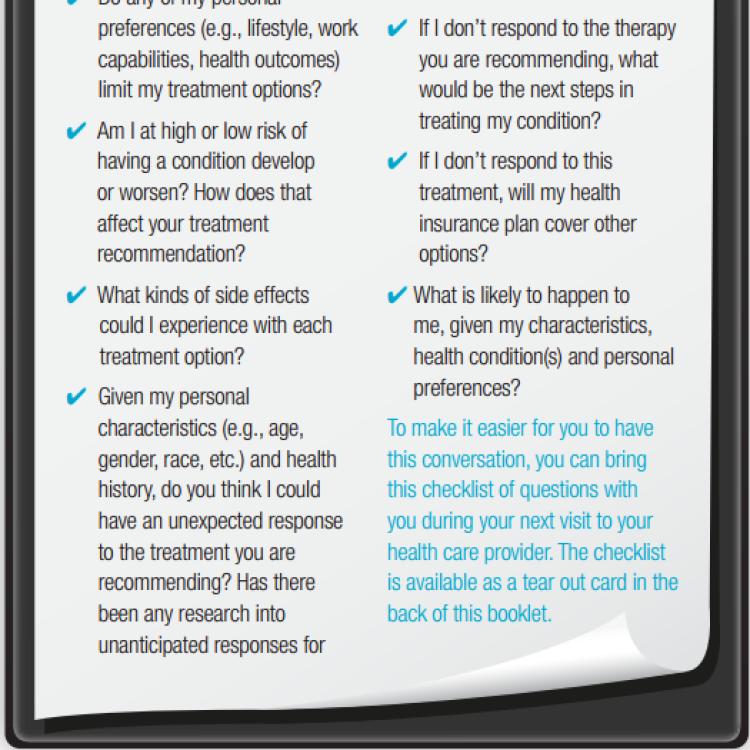As part of our Throwback Thursday blog series, we’re taking a look at a topic that’s currently in the news and tagging it with previous research, videos or commentaries in a relevant way. As the saying goes, “what’s old is new again” – and we hope you enjoy our wonky twist on #TBT.
This October marks the National Council on Patient Information and Education’s (NCPIE) 30th “Talk About Your Medicines” Month, which focuses “attention on the value that better medicine communication can play in promoting better medicine use and better health outcomes.”
NCPIE encourages consumers and their health care providers to have conversations “about all the types of medicines they may take, with a focus on what to know about a medication in terms of expected health outcomes, possible side effects, benefits and potential risks.” To stimulate the conversation, NCPIE has posted on its website a list of questions for consumers to ask their health care providers, which can help to:
- Understand medication side effects—for example, which ones, if any, will go away with time and those that may be experienced for the duration of being on the medicine.
- Avoid adverse drug reactions.
- Improve adherence to medicine regimen(s).
- Live healthier lives.
While it’s important to be aware of a treatment’s potential side effects, it’s also important to be aware of how certain treatments will affect you as an individual. Our bodies respond in different ways to the same treatment because of a wide variety of factors, such as racial and ethnic backgrounds, age, genetics, chronic conditions, gender, environment, and even personal preferences when it comes to health treatments. A one-size-fits-all approach to health care will not provide patients with the optimal care they need and deserve.
Here’s a tool that can help address this concern: NPC’s 2013 booklet, “The Myth of Average: Why Individual Patient Differences Matter,” (and our #TBT pick of the week) offers a checklist of questions for patients to ask their health care providers to account for these differences.
Questions include:
- What are my treatment options and what are the potential benefits and risks?
- Do any of my personal preferences (e.g., lifestyle, work capabilities, health outcomes) limit my treatment options?
- Am I at high or low risk of having a condition develop or worsen? How does that affect your treatment recommendation?
- What kinds of side effects could I experience with each treatment option?
- Given my personal characteristics (e.g., age, gender, race, etc.) and health history, do you think I could have an unexpected response to the treatment you are recommending? Has there been any research into unanticipated responses for patients with my characteristics and condition? How different are patient responses to this treatment?
- If I don’t respond to the therapy you are recommending, what would be the next steps in treating my condition?
- If I don’t respond to this treatment, will my health insurance plan cover other options?
- What is likely to happen to me, given my characteristics, health condition(s) and personal preferences?
Learn more about safe medicine use, storage and disposal on NCPIE’s website, as well as the organization’s other tools to use medicines wisely.
